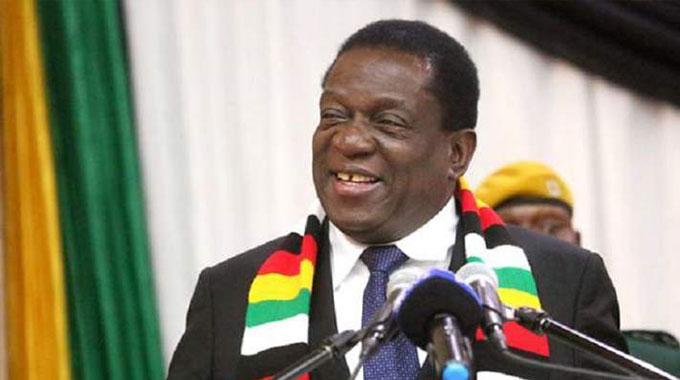EDITORIAL COMMENT: West should heed UN sanctions removal call

WE welcome the call by the United Nations for all sanctions imposed on Zimbabwe to be removed immediately as they are affecting vulnerable people. The UN Special Rapporteur on the Right to Food, Ms Hilal Elver, made the call at the end of her mission to Zimbabwe last week.
In her preliminary observations made after an official 10-day visit which ended last Thursday, Ms Elver said she had “strong conviction” that far from affecting Government officials, sanctions hurt ordinary people, putting paid to claims by the United States of America and the European Union that the punitive measures do not affect ordinary Zimbabweans. “I am also concerned about the negative impact of the economic sanctions and conditionalities imposed on the Government of Zimbabwe and their indirect costs on the overall civilian population, particularly on the right to food,” she said.
“Zimbabwe has been under some form of sanctions since 2001. These targeted sanctions and conditionalities were imposed on the country following policy disagreements concerning the manner in which the land reform programme was handled, reflecting criticism of the political situation and human rights abuses. It is my strong conviction, based on what I have learned during the course of this mission, that these economic sanctions worsen the existing inequalities and do not have any actual impact on their supposed targets.”
Ms Elver’s final report is expected to be presented to the Human Rights Council in Geneva in March next year and her observations add impetus to the Southern African Development Community (Sadc)’s push to have sanctions lifted, as they are having a contagion effect on the region.
The country is currently in the throes of the worst drought in four decades, which has made many families food-insecure while Cyclone Idai, which affected the eastern parts of the country in March this year, also had a negative impact on this year’s harvest. Business, trade and opportunities for the country to receive aid are also being blighted by sanctions, Ms Elver noted.
She said: “While sanctions target certain individuals and institutions, they contribute to creating a very adverse environment for business, international trade and foreign investment.
“The conditionalities under the ZDERA Act, coupled with the failure by the Government to clear its arrears, make it a serious challenge for the Government to access credit lines from international financial institutions. Such conditions clearly diminish the ability of the Government to meet its obligation to adequately feed its people.”
The Special Rapporteur implored the concerned member states (the US and EU), development partners and the international financial institutions, including the World Bank and the International Monetary Fund, “to ease the conditions imposed on the deployment of funds to the Government”.
“For similar reasons, I urge the termination of all sanctions. In the same spirit, I also urge the Government to initiate the promised legal reforms to respect, protect and fulfill its human rights obligations, notably the rights to freedoms of expression, assembly and association, which are the necessary foundations of a human rights-based approach to food security,” she said.
We concur with the observations by the UN Special Rapporteur and urge the West to lift sanctions on Zimbabwe so that the country can successfully implement its economic recovery efforts. The New Dispensation under President Mnangagwa has been implementing reforms to open up the democratic space and enhance the freedoms of citizens of Zimbabwe.
It has also instituted economic reforms aimed at attaining an upper middle income status by 2030. This vision is anchored on an economic blueprint whose success hinges on access to cheap lines of credit and Zimbabwe shedding its pariah status. Currently, businesses are struggling to conduct trade across the world due to sanctions while some are failing to access cheap capital due to the economic embargo.
The observations by the UN are therefore apt as they buttress Government’s assertions that sanctions are an albatross around the country’s neck and are weighing down on recovery efforts. For the country to meet its food requirements, it needs to capacitate its farmers with inputs and other necessary implements but it cannot adequately do this with sanctions still in place.
Ms Elver’s call, which is the most emphatic exhortation by a top UN official, should be taken seriously by the EU, the US and their allies. Zimbabwe, under the new administration of President Mnangagwa, deserves a chance to start afresh and implement its reform programme for the good of the nation and people of this country.
By maintaining a much discredited sanctions regime, the West is depriving the people of Zimbabwe an opportunity to get their country back on track. Besides, sanctions have proved to be ineffective in furthering the foreign policies of Western nations.
In fact, they have achieved the opposite of their intended purposes in that they tend to build patriotic fervour with ordinary people closing ranks with their leaders to ward off external interference.










Comments